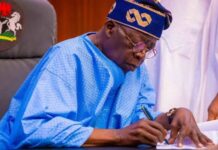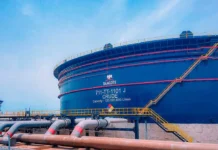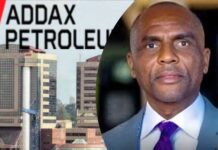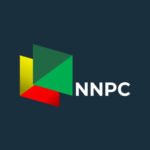- Pump price doesn’t reflect market forces, petrol being subsidised – NNPC
- Private sector won’t invest in oil sector if subsidy continues, says LCCI
The Nigerian National Petroleum Corporation may spend N102.96bn on petrol subsidy this month, going by the recent pricing template for the commodity.
A Federal Government agency, Petroleum Products Pricing Regulatory Agency, on Thursday published the expected new lower and upper prices for petrol at retail outlets in March 2021, putting the rates at between N209.61/litre and N212.61/litre.
It also put the ex-depot price of petrol for the month at N206.42/litre and pegged the expected landing cost at N189.61/litre.
PPPRA is the regulator of the downstream oil sector.
It pulled down Thursday’s template for petrol, with an explanation that the earlier published guiding price did not translate into a hike in pump price despite reflecting market realities.
However, the ex-depot price approved by NNPC for March was N148.6/litre and the corporation insisted that it had not and had no plan to increase petrol price this month.
Ex-depot price is the rate at which NNPC sells the commodity to depot owners, from where retailers make purchase before dispensing at the pumps in filling stations.
“There is no increase in petrol price and our position is that the ex-depot price for petrol in March remains the same. So, no need to panic because there is no hike in price,” NNPC’s spokesperson, Kennie Obateru, stated.
NNPC is the sole importer of petrol into Nigeria for more than three years.
Nigeria consumes about 57.44 million litres of petrol daily, going by the most recent daily consumption figure released by the NNPC in its financial and operations report.
Therefore, the difference between the N206.42/litre ex-depot price published by PPPRA as the expected cost for March and the N148.6/litre price being sold currently to marketers by NNPC shows that the corporation subsidises petrol by N57.82/litre.
Multiplying this by the 57.44 million litres consumed across the country daily and the 31 days in March, it implies that the government through the NNPC will spend about N102.96bn as petrol subsidy this month.
When contacted on Sunday night, the spokesperson of NNPC confirmed that the pump price of petrol was not reflective of the true market price, meaning that the commodity was being subsidised by the corporation.
Obateru said, “The minister and our group managing director had explained that the current pump price is not reflective of the market forces but that engagement is ongoing with labour on this issue.
“This is to find a way in which the cost issues are addressed so as not to impact negatively on Nigerians. That engagement is still ongoing and that is why we said there will be no increment.”
He added, “Initially we said it (no increment) was in February but the engagement still continued in March, which was why we said we are not increasing it in March.
“But the fact is that the current pump price is not reflective of the expected market price for petrol. However, we have to agree with labour before taking any action.”
NNPC’s position that petrol price would not increase in March was further reaffirmed by the Minister of State for Petroleum Resources, Timipre Sylva.
Sylva had apologised to Nigerians on Friday over the publication of the petrol pricing template by PPPRA as well as the panic and fuel queues caused by the development across the country.
He insisted that despite the template, which actually reflected the realities in petrol price, the government would not increase the cost of the commodity this month, meaning that the product would be subsidised.
The minister said the President, Major General Muhammdu Buhari (retd.), had also not approved an increase in petrol price.
He said, “Neither Mr President who is the Minister of Petroleum Resources, nor my humble self who deputise for him as Minister of State, has approved that the pump price of petrol should be increased by one naira.”
Sylva explained that the Federal Government was still engaging labour unions on the matter of petrol price and would not increase the cost of the commodity without reaching an accord with the unions.
He urged oil marketers not to dispense the commodity at the N212.61/litre rate published by PPPRA, as defaulters would be sanctioned.










